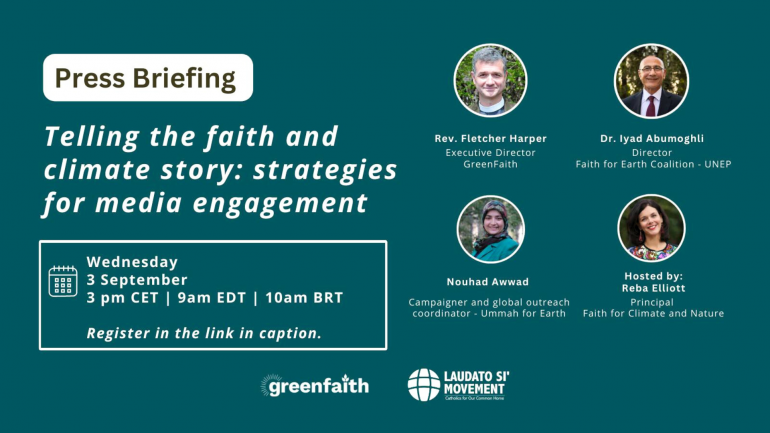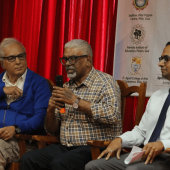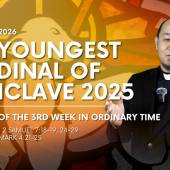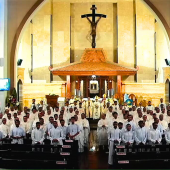Faith a major ‘motivator for climate action,’ new study shows

A new media analysis shows that faith and religious affiliation are strong motivators for climate action.
Entitled “Telling the Faith and Climate Story - Strategies for Media Engagement,” this first-of-its-kind study has noted that media attention on faith and climate action had seen steady growth between 2022 and 2024.
“With 87% of humanity projected to identify with a religion by 2050, faith communities are one of the world’s most powerful forces for climate action, said the report. Across all religions studied, the values of Earth stewardship, social justice, and moral responsibility consistently emerged as strong drivers of engagement by leading religious voices online.
It emphasized how Christianity, particularly Catholicism, dominated discussions on faith and climate change in secular media within the research period.
The study also highlighted how religious leaders have significantly influenced media coverage and faith
through their statements and actions.
It underscored the global impact of the late Pope Francis, mainly due to his active participation in climate conversation and his ecological encyclical Laudato Si’.
Furthermore, in-depth analysis of media coverage has shown that discussions about faith and climate spiked around major events such as the Conference of the Parties (COP) climate summits and Earth Day.
“Interfaith collaborations, particularly around these events, tend to generate more coverage, boosting the visibility of faith-driven climate action,” said the report.
In line with their findings, the study urged media outlets to pay more attention to faith leaders at the grassroots level and activism efforts by religious youth. They also recommend the cultivation of a team of religious and spiritual leaders who can act as regular spokespersons about climate issues.
“This could include religious leaders who develop the capacity to speak at key moments related to climate policy and finance, climate disasters, and intergovernmental negotiations,” the report stated.
The study was provided by Nathalie Bolduc and Filipe Ferreira from Zero Carbon Analytics, an international research group providing insights and analysis about climate change and the energy transition.
They analyzed climate-related stories from 2010 to 2024 in 18 English-language publications serving followers of five major world religions: Buddhism, Christianity, Hinduism, Islam, and Judaism.
The study also explored how faith and climate were discussed in English and Portuguese-language secular news outlets between October 2021 and July 2024, as well as a social listening analysis from September 2022 to September 2024 within five faith-based communities.
Meanwhile, the results and conclusions derived from the study were provided by GreenFaith and the Laudato Si’ Movement.
Radio Veritas Asia (RVA), a media platform of the Catholic Church, aims to share Christ. RVA started in 1969 as a continental Catholic radio station to serve Asian countries in their respective local language, thus earning the tag “the Voice of Asian Christianity.” Responding to the emerging context, RVA embraced media platforms to connect with the global Asian audience via its 21 language websites and various social media platforms.














